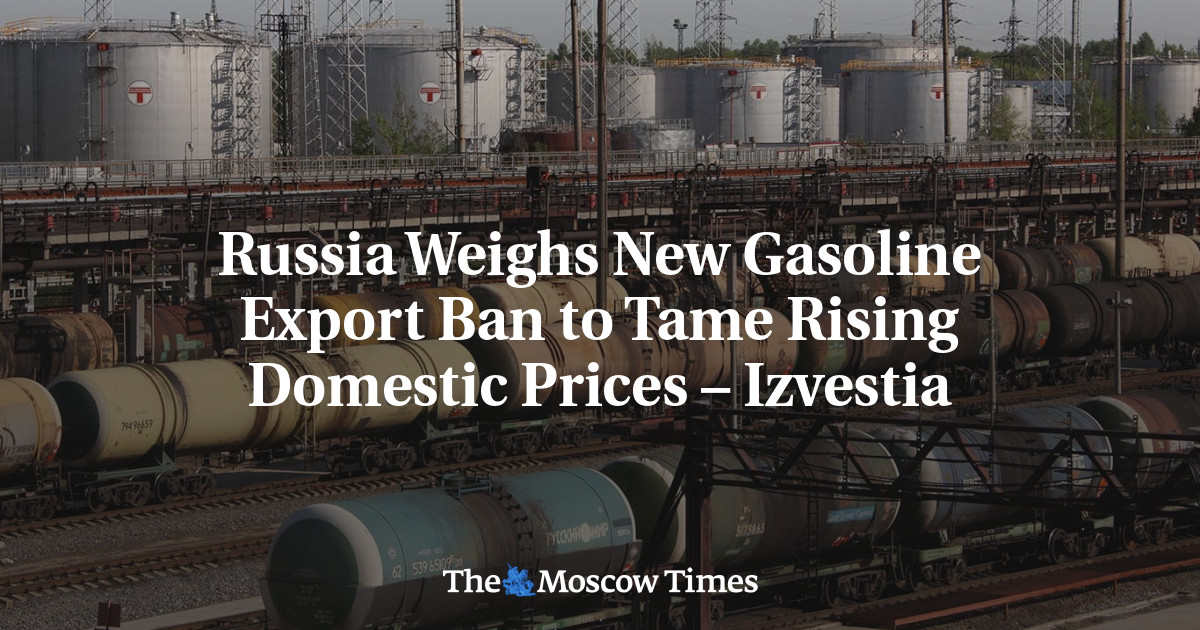The Russian government is considering a fresh ban on gasoline exports in August and September as domestic fuel prices continue to rise, according to multiple sources cited by the pro-Kremlin daily Izvestia.
The proposal was reportedly discussed during a meeting on Wednesday led by Deputy Prime Minister Alexander Novak. Officials are expected to monitor the fuel market for another week before making a final decision, sources familiar with the discussions told Izvestia.
Russia has already imposed restrictions on gasoline exports this year, including a ban from March 1 to Aug. 31 for traders, oil depots and producers with annual output below 1 million tons.
In May, Novak extended these restrictions for non-producers until October, according to Izvestia.
These moves mirror similar measures enacted in spring and autumn of 2024, when export limits were introduced to manage domestic fuel availability. Large refineries were later granted exemptions in both cases.
After the latest meeting, the government’s press service said Novak requested companies to resume operations at refineries promptly after maintenance and to meet planned fuel production targets.
“It is essential to prevent a sharp rise in gasoline prices. The Energy Ministry, together with oil companies, must closely monitor market conditions and manually balance fuel supply to the market,” Novak said.
Novak called on oil companies to stop purchasing fuel from one another and requested a review of retail gas station margins, which he said were being strained by mandatory operating costs.
According to state statistics service Rosstat, retail gasoline prices rose 0.2% in the final two weeks of June and have climbed 3.25% since the beginning of the year. Overall inflation has reached 3.76%.
Seasonal demand and refinery maintenance have squeezed supply, while a downturn in global oil prices has reduced the value of government subsidies to oil producers.
These subsidies, known as damper payments, are designed to offset losses when domestic fuel prices are lower than export prices.
Damper payments totaled 405 billion rubles ($5.2 billion) in the first quarter of 2025, but dropped sharply to 139.7 billion rubles ($1.79 billion) in the second quarter, according to oil market analyst Sergei Tereshkin.
“Higher domestic exchange prices could offset losses in refining margins,” Tereshkin said.
Refineries are now completing maintenance, which could help ease fuel shortages.
However, restricting exports might lead oil companies to reduce refining output, which in turn could push domestic prices even higher, said Yekaterina Kosareva, managing partner at VMT Consult.
Russia’s seaborne petroleum product exports averaged 2 million barrels per day in June, down 85,000 barrels from a year earlier and below May’s levels, according to data from energy analytics firm Vortexa.
